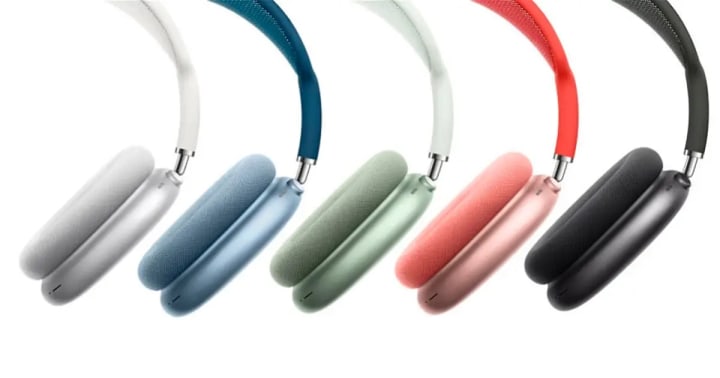Can Wearing Headphones Cause Hair Loss?
Understanding Hair Loss

Many people today can't live without headphones because they give them a private place to listen to music and talk, whether at work or for fun. There are, however, worries about how they might affect people's health, as there are many other everyday items. These worries include whether or not headphones can make you lose your hair. We will talk about this subject in more depth in this piece. We will discuss the science behind hair loss, the possible link between headphones and hair loss, and how to lower any risks.
Understanding Hair Loss:
Genes, nutrition, stress, sickness, and environmental factors are just a few of the numerous factors that can contribute to alopecia or hair loss. Most cases of hair loss are caused by androgenetic alopecia. Hereditary and hormonal factors influence it. More than a few hair follicles on the head enter the resting phase of the hair development cycle, resulting in other types, such as telogen effluvium. A body under stress or shock may experience this. It is necessary to comprehend the operation of headphones before considering the possibility that they are the source of hair loss.
The Mechanism of Headphone-Related Hair Loss:
Headphones and Hair Loss Your hair might make sense if you think about rubbing or pressure. The name for this type of hair loss is traction alopecia. It happens when hair shafts are constantly pulled or pressed on. People with tight haircuts often look like this, making you wonder if wearing headphones can always put enough pressure on your ears to have the same effect.
Earbuds and the top of the headphones are the places where headphones lay, particularly larger ones that cover the ears. The constant pressure exerted by the headband on the scalp may cause harm to the hair follicles. But pressure alopecia from headphones can only occur in the following scenarios:
1.Pressing on your head: The headphones should fit so tightly that they squeeze your head
2.Length: Greater wear times without pauses or adjustments.
3.Frequency: Regular use over a long length of time.

Expert opinions and science proof:
Right now, there is only a little solid proof that headphones can cause hair loss. The majority of doctors and hair care experts agree that traction alopecia can happen if you wear headphones that are very tight for long periods every day, but this is very rare and would probably need particular conditions.
Lastly, it's essential to remember that headphones have changed significantly over the years. Numerous modern headphones are made to be comfortable, with padded headbands and ear pillows that spread pressure more evenly. These design changes are necessary to lower the risk of hair loss or harm.
The Myth About Headphones and Hair Loss:
The myth that wearing headphones causes hair loss has long persisted in popular culture. Some who hold this belief claim that the pressure exerted by headphones on the scalp might stop blood flow to the hair cells, weakening the hair's roots and causing it to fall out. Continuous friction from headphone bands pressing against the scalp is another issue that is reported to cause pain and hair loss.
Personal stories and false beliefs:
People say on the internet that wearing headphones has made their hair fall out or thinner, but there is no scientific proof. While these events are actual and should be considered, they often don't look at other things that might be at play, like a genetic tendency to hair loss, stress, or not getting enough food.
People may also need help understanding because they are mixing up the different types of baldness. For example, finding hair stuck in the ear band might not always mean you have traction alopecia; your hair could just be falling out regularly.
Getting rid of the myth
Many people are worried that headphones can cause hair loss, but there isn't much scientific evidence to support this. It is possible for excessive friction or pressure on the scalp to damage hair cells, but headphones don't do much to stop this Studies show that the pressure from most headphones is not likely to hurt the scalp or hair cells too severely. In a study released in the "Journal of the American Academy of Dermatology," researchers found no link between headphone use and hair loss in the people who took part. The head is also protected from damage by tissue and hair follicle layers, making it less likely to get hurt by pressure from the outside.

Factors that influence the health of hair:
Examining everything that may impact hair growth is crucial, rather than attributing hair loss to headphones. Several of these elements include:
1. Genetics: A person's genes are often the most critical factor that causes hair loss. Male and female pattern baldness is a genetic disease that has nothing to do with wearing headphones.
2.Hormone Imbalance: Changes in hormone levels, like those during menopause, pregnancy, or thyroid problems, can cause hair loss.
3.Medical disorders: Even when you're not wearing headphones, several medical disorders like autoimmune diseases, scalp infections, and alopecia areata can cause hair loss.
4.Deficiencies in essential nutrients: Hair health can be hurt by insufficient vitamins and minerals to thrive.
5.Worry and Lifestyle: Tobacco and excessive alcohol consumption, poor food habits, and emotional worry can all exacerbate hair loss.
Conclusion:
Finally, it should be noted that the notion that using headphones causes hair loss is primarily perpetuated by anecdotes rather than empirical evidence. Headphones don't affect the health of hair when appropriately worn, but excessive friction or pressure on the skin might harm hair. Even if they wear headphones, people can maintain thick, lustrous hair. They only need to pay attention to their regular hair care regimen to address the root reasons for hair loss. Enjoy your favorite music or films without worrying about your headphones being lost in the locks.
FAQs:
Can wearing headphones cause hair loss?
Answer: Headphones don't typically contribute to hair loss. Headphones are not the only thing that triggers hair loss. Hormonal fluctuations, genetics, illnesses, and lifestyle decisions all impact.
Are there any headphones that don't make hair loss more likely?
Answer: Most of the time, properly fitting headphones shouldn't cause hair loss. It's not likely that overtightening or wearing headphones for extended amounts of time will cause hair loss, but it may irritate the scalp.
Are headphones capable of causing pain or thinning hair?
Answer: It's unlikely that wearing headphones will immediately cause your hair to thin or become damaged. However, headphones may cause pain or irritation if worn excessively firmly or scrape against the hair. To keep from growing too uncomfortable, make sure your headphones fit properly and take rests.
Should you worry about hair loss from headphones?
Answer: Overall, wearing headphones shouldn't be a big deal regarding hair loss. People who wear headphones aren't the only ones who lose their hair. Genetics, hormonal problems, and underlying medical conditions are more often to blame.
How can I ensure that using headphones won't cause me any pain?
Answer: To ensure that using headphones won't cause discomfort, make sure the fit is proper and not too tight. Taking regular pauses will allow your hair to breathe and prevent irritation. To lessen the strain on your head, you should also wear headphones with softer padding or rearrange their position.
About the Creator
Renusa Sihe
Based in Hongkong, China, Renusa Sihe works as an editor for an online store by day and delves into esoteric fiction by night. He lives with a tiny spoiled dog and an ancient toothless cat.






Comments
There are no comments for this story
Be the first to respond and start the conversation.